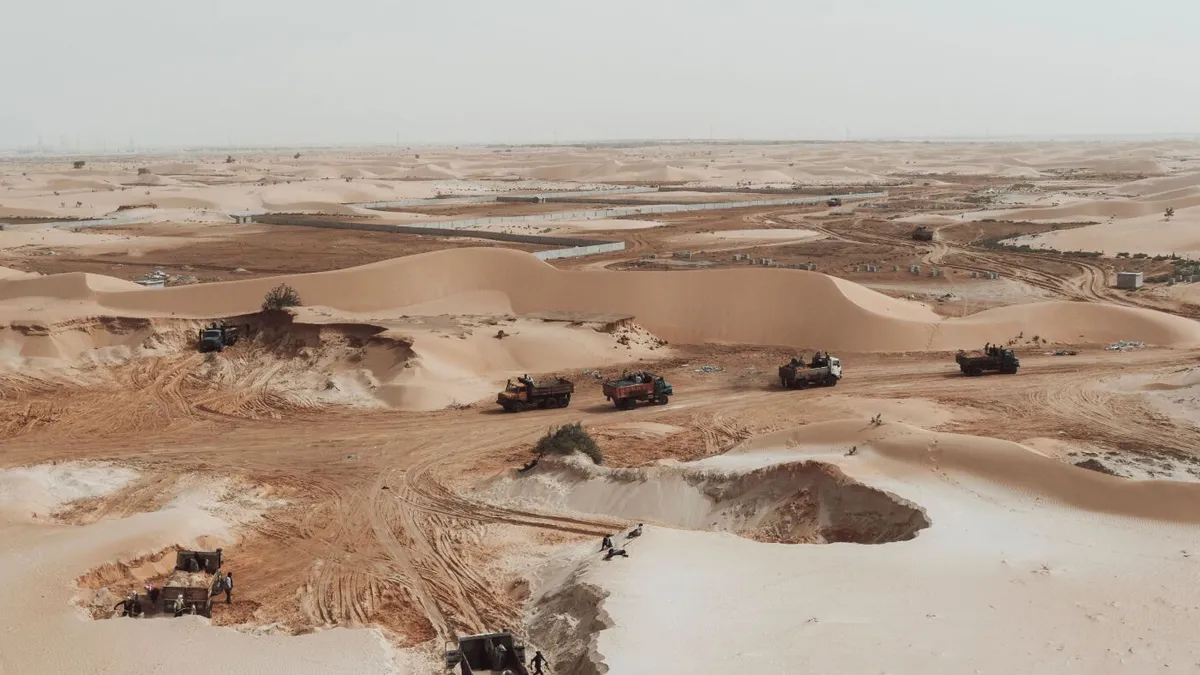
LAGOS, Nigeria — This week, the presidents of Senegal, Liberia, Guinea-Bissau, Mauritania, and Gabon are convening in Washington for a pivotal three-day mini summit hosted by President Trump. The White House has characterized this meeting as part of a broader initiative to enhance commercial opportunities between the United States and various African nations. While specific details of the summit remain scarce, senior U.S. officials have indicated that the discussions signify a significant shift in the Trump administration's approach from traditional aid to fostering robust economic partnerships across the continent.
The summit will feature a White House lunch with President Trump on Wednesday, followed by a series of closed-door economic meetings that will continue through Friday. Notably, last month, the Trump administration successfully brokered a peace deal between the Democratic Republic of Congo and Rwanda, which many analysts view as a precursor to a potential deal involving rare earth minerals. This week’s summit could similarly focus on vital resources, particularly Gabon's manganese and uranium. As Prof. David Okoye from Nigeria's Niger Delta University notes, Trump’s transactional approach emphasizes clear benefits from these nations.
The timing of this summit is critical, as it coincides with increasing U.S. concerns regarding China's expanding footprint in Africa. Reports suggest that Beijing is actively scouting port locations along West Africa's coastline for potential military use, raising alarms among U.S. officials. Cameron Hudson from the Center for Strategic and International Studies points out that the U.S. is closely monitoring Chinese interests in countries like Gabon, Guinea, and Mauritania. China has positioned itself as Africa's leading trade and investment partner, while its military presence continues to grow, alongside that of Russia.
Significantly, the U.S. military has been reducing its presence in the Sahel, where it has supported counterterrorism operations for nearly two decades. Since 2020, military juntas in Burkina Faso, Mali, and Niger have expelled Western forces, including U.S. troops, opting instead for security support from Russia. Alongside China, India, Brazil, and South Africa, Russia is a founding member of the BRICS bloc, and has been strengthening both economic and military ties across the African continent.
Amid these discussions, tensions concerning recent aid cuts are likely to overshadow the talks. Liberia, a traditional recipient of U.S. foreign assistance, has faced severe challenges following Trump's closure of USAID earlier this year. These cuts led to the shutdown of health centers and critical shortages of HIV medication and contraceptives. Previously, U.S. support constituted nearly 3% of Liberia's national income—the highest percentage for any country, as reported by the Center for Global Development.
Despite these challenges, Liberia's government has attempted to downplay any potential friction, framing the summit as an opportunity to prioritize economic and trade opportunities over mere charity and aid. For some leaders, the meeting holds personal significance. Guinea-Bissau's President Umaro Sissoco Embaló, who faces domestic criticism for delaying elections, has described Trump's invitation as a diplomatic triumph, highlighting shared leadership values.
Observers have raised eyebrows at the absence of key players such as Nigeria, South Africa, and Ghana—three of the region's largest democracies and long-standing U.S. allies. Some speculate that Nigeria's burgeoning ties with BRICS may have influenced this decision, especially following President Tinubu's recent attendance at the BRICS summit in Brazil. Additionally, Ghana's relations may have soured after former President John Mahama criticized Trump's treatment of South Africa's leader during a recent Oval Office meeting.
As relations with South Africa deteriorate, highlighted by the U.S. imposing a 30% tariff on all South African imports starting in August, the selection of these five countries for the summit raises questions. Prof. Paul Agwu of Nigeria's University of Port Harcourt noted, "It's hard to tell why these five countries were picked. We'll see what comes out of it—but I doubt it'll be anything new." The outcome of this mini summit will be closely watched, as it could reshape the landscape of U.S.-Africa relations moving forward.